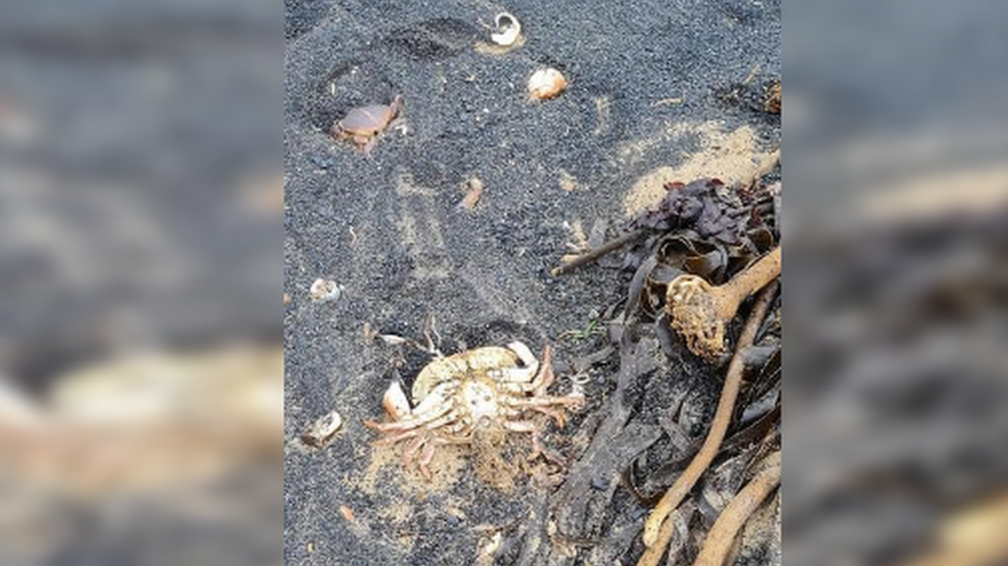Redcar councillors call for reinvestigation into shellfish deaths
- Published
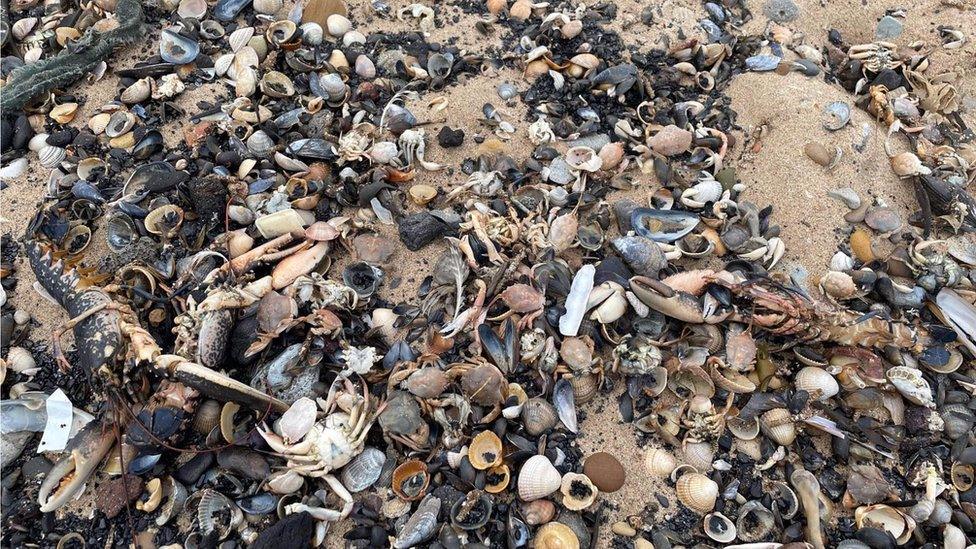
Thousands of dead crabs and lobsters have washed up along the coast since October
The deaths of thousands of crabs, lobsters and other marine life in the north-east of England should be reinvestigated, a council has said.
Mass wash-ups have happened along the coast since October.
Redcar and Cleveland council along with Middlesbrough and Hartlepool want the government to take action.
The Department for Environment Food & Rural Affairs (Defra) said results pointed to an "algal bloom", but the fishing industry disputes that.
Redcar and Cleveland Council members unanimously backed a motion which demanded an investigation be reopened.
It said the government should "provide proper compensation for the lost income and livelihoods caused by this crisis" and examine the possibility of creating a coastal hatchery to replenish crustacean stocks.
South Bank Labour councillor Sue Jeffrey told the Local Democracy Reporting Service: "What's important is a local-led inquiry that is completely independent.
"We're not doing this on our own, Middlesbrough Council have already passed a motion calling for a local inquiry and Hartlepool Council are doing the same today, we could work together with them and the costs could be shared between us."
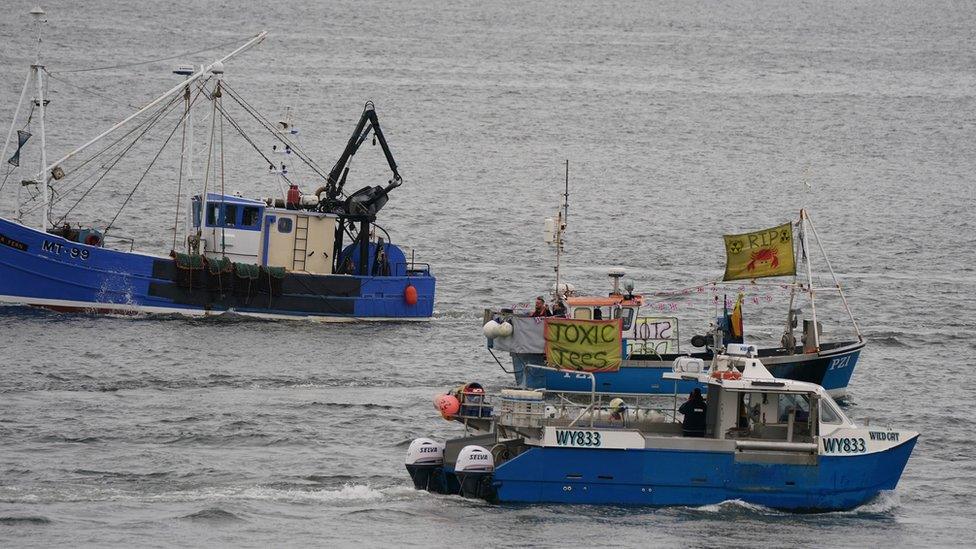
Fishing fleets fear going out of business unless further investigations are carried out
Saltburn independent councillor Philip Thomson said the general consensus was "we have a major issue here".
"We know from the stats that the level of pyridine found in crustaceans off the North East coast is 70 times higher than that found in Cornwall," he said.
"All of the historic misuses of the Tees waters are still with us inherited in the silt in the Tees. The need to have this investigation is well founded."
Defra's investigation earlier this year also found it was unlikely that chemical pollution, sewage or infectious aquatic animal diseases were to blame.
A review of dredging activity and water samples found no evidence of a link between the disposal of dredged sediment and the deaths, and the investigation was closed because Defra said healthy crabs and lobsters were being found.
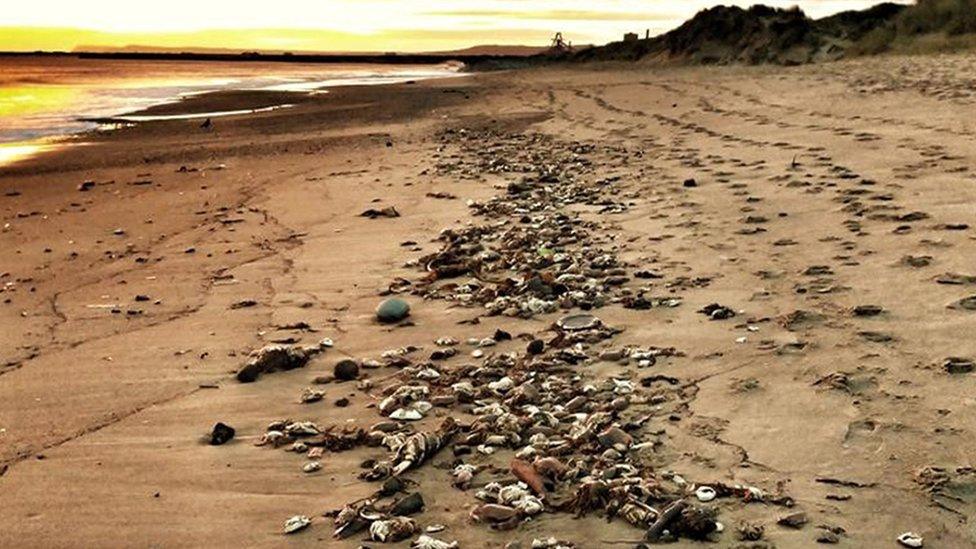
Thousands of dead crustaceans were found along the coastline including Seaton Carew
The response has not satisfied the fishing industry which said it had experienced reduced catches and some feared they would go out of business.
They believed the mass crustacean deaths were linked to dredging at the mouth of the River Tees.
In May about 30 boats took part in a protest.
Tim Deere-Jones, a marine pollution researcher was commissioned to investigate by Whitby Fishermen's Association, and found quantities of the chemical pyridine were more than 70 times higher in some crab samples.
Defra previously said it had carried out a thorough investigation which concluded the algal bloom was the most likely cause and ruled out a number of other potential causes.

Follow BBC North East & Cumbria on Twitter, external, Facebook, external and Instagram, external. Send your story ideas to northeastandcumbria@bbc.co.uk, external.
- Published27 June 2022
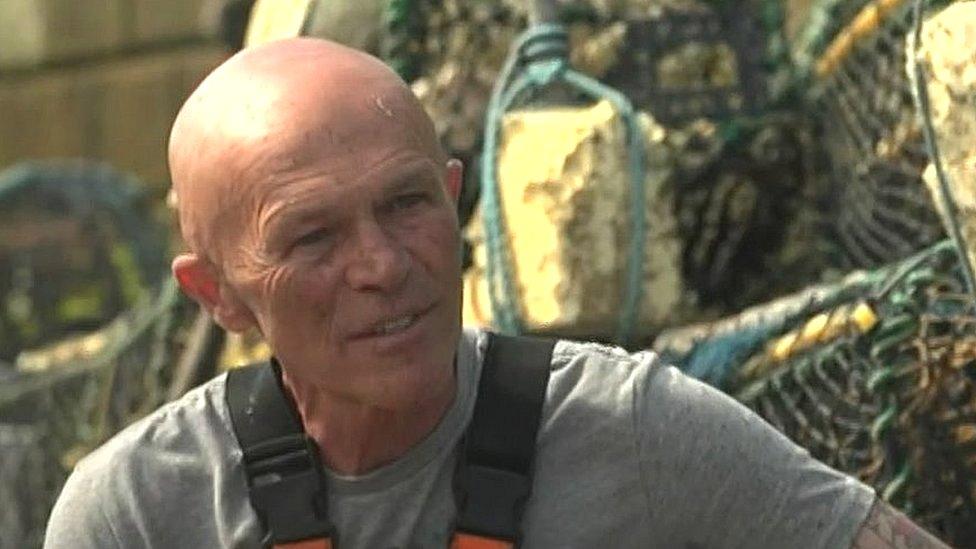
- Published19 February 2022
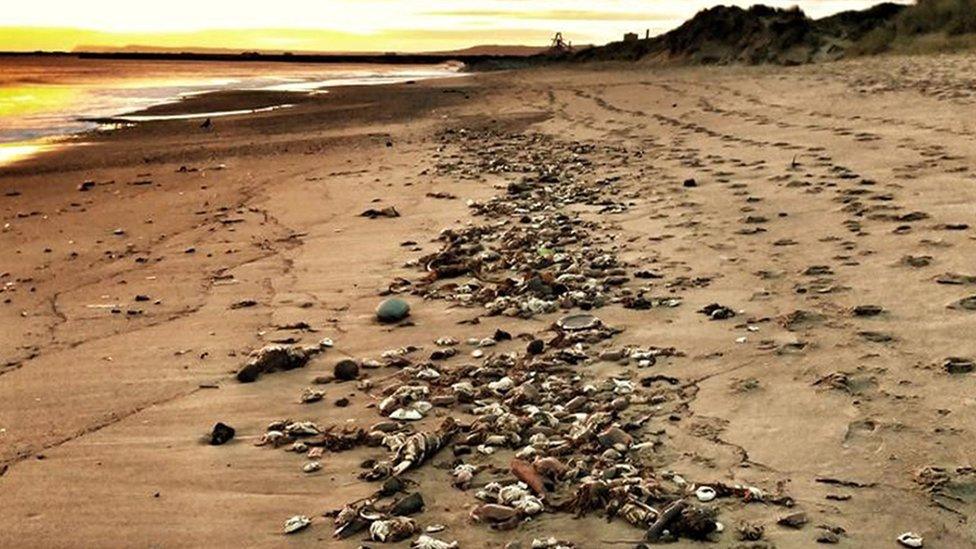
- Published5 February 2022

- Published3 February 2022

- Published21 January 2022
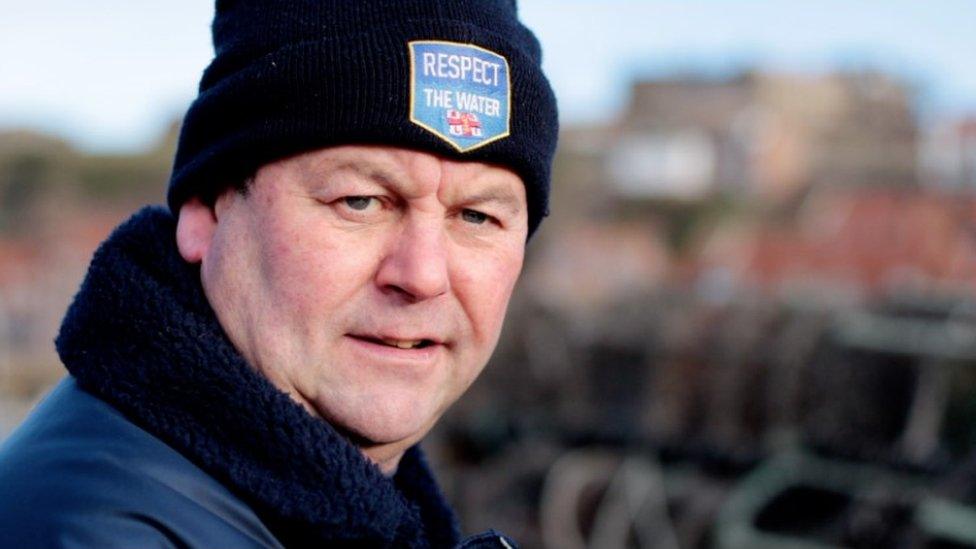
- Published26 November 2021

- Published4 November 2021

- Published25 October 2021
